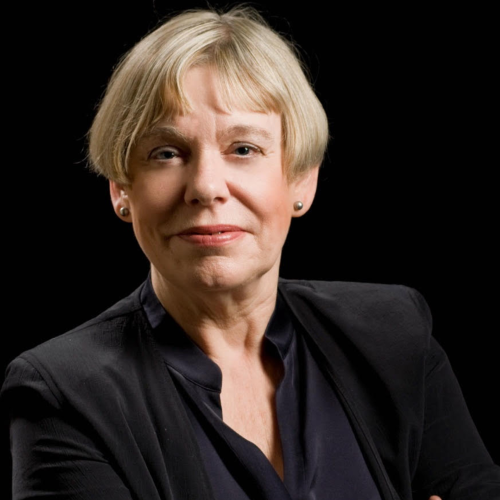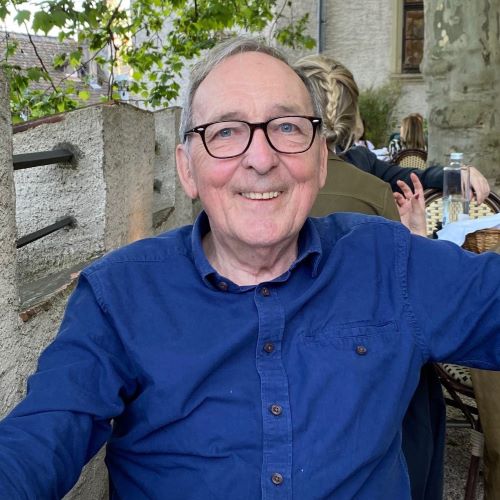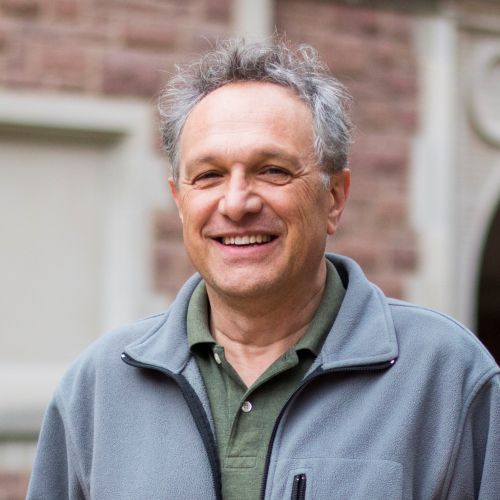Karen Armstrong: Scholar of Religion, Myth, and the Ethics of Compassion
Introduction
Karen Armstrong, born on November 14, 1944, in Worcestershire, England, is one of the most respected voices in contemporary discussions of religion, mythology, and spirituality. Once a Catholic nun, Armstrong’s early years were defined by deep religious study and discipline. After leaving the convent, she pursued English literature at Oxford University, which led her to re-examine faith from a scholarly and humanistic perspective. Over the decades, she has emerged as a leading interpreter of world religions, dedicated to uncovering the shared moral and philosophical threads that unite them. Her writings, lectures, and initiatives—particularly her advocacy for compassion as a universal principle—have made her a powerful voice for interfaith harmony and understanding.
Area of Expertise
Karen Armstrong’s expertise lies in the comparative study of religion and mythology. Her research explores how ancient myths and spiritual traditions evolved to address fundamental human questions about existence, suffering, morality, and transcendence. She views myths not as primitive stories but as profound tools that shape how societies interpret the world. Her academic scope spans both Eastern and Western traditions—analyzing the Abrahamic faiths of Judaism, Christianity, and Islam alongside the philosophical systems of Buddhism, Hinduism, and Taoism.
A defining element of Armstrong’s work is her emphasis on the “Axial Age” (approximately 800–200 BCE), a pivotal period when many of the world’s major philosophical and religious traditions took shape. She argues that this era’s thinkers—from Confucius and Buddha to Socrates and the Hebrew prophets—redefined spirituality by centering ethics, empathy, and self-transformation. Armstrong also contends that modern society’s alienation stems partly from a loss of mythic imagination, urging a revival of myth as a means of moral and emotional understanding.
Her writings advocate for compassion as the essence of every major faith—a message she calls “the Golden Rule” of human coexistence. She reminds readers that true religion, at its core, calls for empathy, tolerance, and selfless service rather than dogmatic division.
Books & Publications
Karen Armstrong is an exceptionally prolific author, having written over 20 books that bridge theology, history, and philosophy. Her works are known for their clarity, depth, and ability to make complex subjects accessible to general audiences.
One of her most influential books, A History of God (1993), traces the 4,000-year evolution of monotheism in Judaism, Christianity, and Islam, offering an illuminating view of how conceptions of the divine have transformed alongside human civilization. Another landmark text, The Battle for God (2000), examines the rise of religious fundamentalism, presenting it as a modern response to the anxieties of secularization rather than as a relic of the past.
Her book A Short History of Myth (2005), written for the Canongate Myth Series, distills her lifelong engagement with the power of storytelling. Here, she argues that myths serve as metaphors for psychological and spiritual truth, teaching humanity how to live meaningfully in a chaotic world.
In The Great Transformation (2006), Armstrong expands her analysis to the Axial Age, exploring how the great sages of that period reshaped global thought. Fields of Blood: Religion and the History of Violence (2014) challenges the popular belief that religion inherently causes conflict, arguing instead that political and social forces have historically driven violence under religious banners.
Her biographical works, such as Muhammad: A Prophet for Our Time and Buddha, reflect her dedication to dispelling stereotypes and fostering intercultural understanding. Other significant titles include Islam: A Short History, The Case for God, and Twelve Steps to a Compassionate Life, each contributing to her overarching mission of promoting empathy and coexistence.
Research & Contributions
Karen Armstrong’s research emphasizes the unity of spiritual experience across time and cultures. She redefines religion not as blind belief but as disciplined practice—a form of “ethical alchemy” that transforms human consciousness. Her studies demonstrate that throughout history, myths and rituals have served as frameworks for moral growth and social cohesion.
Armstrong has played a pivotal role in global interfaith dialogue. After receiving the TED Prize in 2008, she launched the Charter for Compassion, a worldwide initiative that calls on individuals and institutions to embody compassion in daily life. The Charter has since been endorsed by community leaders, educators, and religious organizations worldwide.
In her analyses, Armstrong frequently dismantles the notion that science and religion are incompatible. Instead, she sees them as complementary approaches to understanding human experience—science explaining the “how” of existence and myth addressing the “why.” Her perspective has helped modern audiences reconnect with the symbolic dimension of religion without abandoning rational thought.
Armstrong has also been a vocal critic of Islamophobia, emphasizing that distortions of Islam in media and politics have deepened global divisions. Through her public lectures, advisory roles, and television documentaries—such as The First Christian and Muhammad: Legacy of a Prophet—she continues to educate audiences about the historical and philosophical richness of faith traditions.
Awards & Recognitions
Karen Armstrong’s career has been marked by numerous awards recognizing her scholarly excellence and humanitarian vision.
In 2008, she received the TED Prize, using the grant to launch her global Charter for Compassion initiative. That same year, the Roosevelt Institute honored her with the Freedom of Worship Award, acknowledging her role in promoting understanding among religious communities.
She was awarded the Dr. Leopold Lucas Prize by the University of Tübingen in 2009, followed by the Nationalencyklopedin’s International Knowledge Award in 2011 for her contributions to spreading awareness about religion’s unifying power.
In 2013, the British Academy presented her with the Nayef Al-Rodhan Prize for Global Cultural Understanding, celebrating her exploration of shared human values across civilizations. Her global reputation was further solidified in 2017, when she received the Princess of Asturias Award for Social Sciences, one of Spain’s highest honors, for her lifelong efforts in studying and interpreting the world’s religions.
Armstrong is also a Fellow of the Royal Society of Literature and holds multiple honorary doctorates from universities including Aston, Queen’s, St Andrews, and McGill. These honors reflect her profound influence as both a scholar and moral thinker.
Social Media Profiles
Karen Armstrong maintains a minimal personal presence on social media, reflecting her preference for collective action over individual promotion. However, her ideas reach millions through digital platforms associated with her initiatives and publishers. The Charter for Compassion website (charterforcompassion.org) serves as a global hub for her projects, educational resources, and community programs. Her talks and interviews are widely available on TED.com and YouTube, where she discusses topics ranging from religious history to moral philosophy.
While she is not personally active on social networks, her legacy thrives online through universities, interfaith organizations, and publishers such as Canongate and Penguin Random House, ensuring that her voice continues to inspire global audiences.
Bibliographic Sources
The Editors of Encyclopaedia Britannica. (2009, July 30). Karen Armstrong | Biography, Books, & Facts. Encyclopaedia Britannica. https://www.britannica.com/biography/Karen-Armstrong
Armstrong, K. (2025, October 24). Armstrong, Karen 1944–. Encyclopedia.com. https://www.encyclopedia.com/arts/educational-magazines/armstrong-karen-1944
Karen Armstrong – Fundación Princesa de Asturias. (2024, March 25). Karen Armstrong – Princess of Asturias Award for Social Sciences. Fundación Princesa de Asturias. https://www.fpa.es/en/awards/2017/karen-armstrong
Wikipedia contributors. (2004, June 17). Karen Armstrong. Wikipedia. https://en.wikipedia.org/wiki/Karen_Armstrong
United Nations Alliance of Civilizations. (2020, January 30). Ms. Karen Armstrong – UNAOC. https://unaoc.org/2012/01/uma-karan-armstrong
Penguin Random House. (2025, September 15). Karen Armstrong. https://www.penguinrandomhouse.com/authors/19648/karen-armstrong
Karen Armstrong official website. (2025, March 21). Home – Karen Armstrong. https://www.karen-armstrong.com
Parliament of the World’s Religions. (2025, October 14). Karen Armstrong, OBE FRSL – Parliament of the World’s Religions. https://parliamentofreligions.org/speaker/karen-armstrong-obe-frsl








